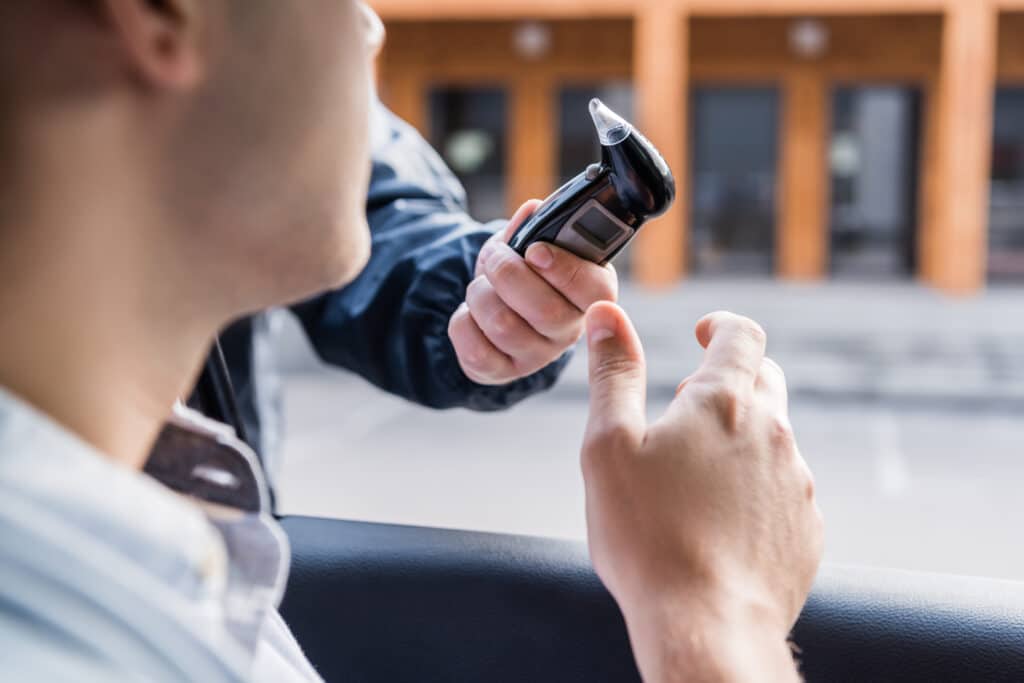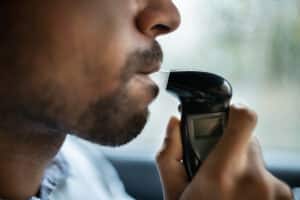Can You Refuse a Breathalyzer Test in Florida?

You can legally refuse a breathalyzer test in Florida, but doing so has serious consequences. Under the state’s implied consent law, simply by driving, you agree to submit to chemical testing if lawfully arrested for driving under the influence (DUI). Refusing a breathalyzer for the first time results in a one-year driver’s license suspension. A second or subsequent refusal can lead to an 18-month suspension and criminal misdemeanor charges.
Refusal can also be used as evidence in court, potentially making your case more challenging to defend. Even without test results, prosecutors may rely on officer observations and other evidence to pursue a DUI conviction. These penalties can affect your freedom, finances, and future.
Because DUI cases and breath test refusals involve complex legal issues and strict deadlines, having an experienced Florida criminal defense attorney on your side is critical. A skilled lawyer can protect your rights, challenge the evidence, and pursue the best possible outcome in your case.
Potential Consequences of Refusing a Breathalyzer Test in Florida
If you refuse to take a breathalyzer test in Florida, the first consequence you will likely face is an automatic suspension of your driver’s license. Florida follows an “implied consent” law, which means that by having a Florida driver’s license and driving on Florida roads, you have already agreed to take a breath, blood, or urine test if an officer believes you are driving under the influence. If you refuse to take the test, even if you haven’t been drinking, your driver’s license will be suspended for one year for a first offense. If you refuse a second or third time, your license will be suspended for 18 months. A second or third refusal is also considered a misdemeanor criminal offense.
In addition to losing your license, a breathalyzer refusal can be used as evidence against you in court. Prosecutors often argue that refusing the test means you were trying to hide that you were drunk, which can hurt your defense, especially if your case goes to trial. The refusal alone doesn’t prove you were guilty of DUI, but it can make you look like you had something to hide, and that impression can influence a judge or jury.
Refusing a breath test can also increase the penalties you face if you are later convicted of DUI. You can still be found guilty without test results based on officer observations and other evidence. If that happens, your refusal can lead to harsher penalties, including longer license suspension, higher fines, and required completion of DUI school or substance abuse programs.
Another consequence is how the refusal affects your driving record and car insurance. A refusal is recorded on your driving history and may be viewed negatively by insurance companies. They may raise your premiums or even cancel your policy entirely, making it more complicated and more expensive to get insured in the future.
The process becomes more difficult if you apply for a hardship license to drive for work or school during suspension. You may be required to complete DUI classes before applying, and your request may be denied depending on your history. Refusing a breathalyzer test can make recovering your driving privileges much more complicated.
Elements of Proof in a Florida DUI Case
In a Florida DUI case, the prosecutor has the burden to prove certain legal elements beyond a reasonable doubt to convict you. These elements are vital because they show the court that the state has enough evidence to prove you were driving under the influence of alcohol or drugs.
First, the prosecutor must prove that you were driving or in physical control of a vehicle, which means that you were operating the vehicle or had the ability to operate it at the time of the arrest. You don’t have to be actively driving when stopped, but the state must show you had control over the vehicle’s movement.
Second, the prosecutor must prove that the stop of your vehicle was lawful. This proof usually means that the police had reasonable suspicion to pull you over, such as observing erratic driving, speeding, or other traffic violations.
Third, the state must prove that you were under the influence of alcohol or drugs to the extent that your normal faculties were impaired, meaning that your ability to drive safely was affected. The prosecution can use several types of evidence to show impairment, including officer observations of your behavior, field sobriety test results, and your appearance or speech.
When a breathalyzer test is involved, the prosecutor must also prove that the test was administered correctly and that the results are reliable. This proof includes showing that the device was calibrated and maintained correctly, the person administering the test was trained, and the test was given according to proper procedures. The breathalyzer result itself is often used as evidence that your blood alcohol concentration (BAC) was 0.08 percent or higher, which is the legal limit in Florida for drivers over twenty-one.
If the prosecutor can prove all these elements beyond a reasonable doubt, they can secure a DUI conviction. However, if any element is not proven, the defense may argue that there is insufficient evidence to convict. Therefore, it is important to have a skilled attorney review the case, including the breathalyzer results and how the test was conducted. Challenging the legal elements can protect your rights and potentially reduce or dismiss charges.
Penalties and Collateral Consequences of a Florida DUI

For a first-time DUI conviction in Florida, the legal penalties typically include a fine of up to $1,000, probation for up to one year, and possible jail time up to six months. The court will also require you to attend DUI school, which is a substance abuse education program. Your driver’s license will also be suspended for at least 180 days. You may be eligible for a hardship license, which allows you to drive for work, school, or medical appointments during your suspension.
The penalties increase if your BAC was 0.15 percent or higher, or if a minor was in the vehicle during the offense. Fines can go up to $2,000, and jail time can be extended to nine months. The license suspension period will also be longer.
For a second DUI offense within five years, penalties become harsher. You may face fines up to $2,000, jail time up to nine months, and license suspension for at least five years. You will also have to complete a more intensive DUI program and may be required to install an ignition interlock device in your vehicle, which prevents the car from starting if alcohol is detected on your breath.
If the DUI involves an accident causing injury or death, the charges and penalties become more severe and may include felony charges, longer prison sentences, and larger fines.
Beyond these direct legal penalties, collateral consequences can affect your personal and professional life. A DUI conviction will appear on your driving and criminal records, which can affect your ability to find employment, secure housing, or qualify for loans. Insurance companies usually raise rates significantly after a DUI, sometimes even canceling your policy. Certain professions that require driving or have strict ethical standards may be at risk of losing licenses or certifications.
In short, a DUI conviction in Florida carries serious consequences that affect both your freedom and your future.
Defending Against a Florida DUI Charge Where a Breathalyzer Test Is Involved
In a Florida DUI case involving a breathalyzer test, there are several legal defenses that a skilled lawyer may use to challenge the charges against you. Breathalyzer tests are often seen as strong evidence, but are not always accurate or properly administered.
One common defense is challenging the accuracy of the breathalyzer test. These devices require regular maintenance and calibration to give reliable results. The results may be inaccurate if the machine was not correctly calibrated, had mechanical problems, or was not maintained according to state standards. An attorney can request records showing the device’s maintenance history to check for errors.
Another defense involves the way the breath test was administered. The person operating the breathalyzer must be trained and certified under Florida law. If the officer or technician who gave you the test was not properly trained or did not follow proper procedures, the test results may be inadmissible in court. For example, if the officer did not wait the required time after your last drink or did not observe you correctly before the test, your lawyer can argue that the test results are invalid.
Additionally, an attorney may challenge the legality of the traffic stop or your arrest. If the police did not have reasonable suspicion to stop you or probable cause to arrest you for DUI, any evidence obtained, including breathalyzer results, may be thrown out, which is called a motion to suppress evidence.
Sometimes, a defense may focus on medical or physiological factors. Certain medical conditions, like acid reflux or diabetes, can affect breathalyzer results. Additionally, residual mouth alcohol from recent use of mouthwash or breath spray can lead to falsely high readings. Your lawyer may use this information to argue that the breath test did not accurately reflect your blood alcohol level.
Finally, the defense may question whether your normal faculties were actually impaired. The prosecution must prove that you were unable to drive safely. If your lawyer can show that you were not impaired despite the breathalyzer reading, they may convince the court to reduce or dismiss the charges.
A knowledgeable criminal defense attorney can evaluate your case and use these defenses to protect your rights.
How Can a Lawyer Handle Your DUI Case Involving Breathalyzer Evidence?

A knowledgeable criminal defense lawyer can be invaluable in handling your Florida DUI case, especially when a breathalyzer test is involved. Breathalyzer results often form a key part of the evidence against you, but a skilled lawyer understands that these tests are not always accurate and that the prosecution must follow strict rules when using them. Hiring an experienced DUI defense attorney improves your chances of challenging the breathalyzer evidence and protecting your rights throughout the case.
One of the first things a good DUI defense lawyer will do is review the circumstances of your arrest in detail, including examining whether the police had legal grounds to stop your vehicle and whether the breathalyzer test was administered correctly. The attorney will look for mistakes such as improper calibration of the breathalyzer device, incorrect testing procedures, or failure to follow state guidelines. Any errors can call the reliability of the breath test results into question, which can be critical in your defense.
Your lawyer will also investigate whether the breathalyzer operator was properly trained and certified. Florida law requires that individuals who administer breath tests meet specific training requirements. If the person who tested you did not meet these qualifications, your lawyer can argue that the results should be excluded from evidence.
Besides focusing on the breathalyzer test itself, a skilled DUI defense attorney will also examine other evidence in your case. This evidence can include police reports, dashcam or bodycam videos, witness statements, and field sobriety test results. Your lawyer will look for inconsistencies or weaknesses in the prosecution’s case that may help reduce or dismiss the charges.
Your defense attorney will present these findings in court and challenge the prosecution’s evidence. They may file motions to suppress breathalyzer results or argue that the evidence does not prove you were impaired beyond a reasonable doubt. A strong defense can lead to reduced charges, alternative sentencing options, or a complete dismissal.
Finally, a knowledgeable DUI attorney will guide you through the legal process, explaining your rights and options at every step. They will negotiate with prosecutors when appropriate and help understand the consequences of different plea deals or trial outcomes. Experienced legal representation can significantly affect the outcome of your Florida DUI case, especially when complex breathalyzer evidence is involved.
Contact an Experienced Florida DUI Defense Attorney Today
If you are currently facing a Florida DUI charge where a breathalyzer test was performed, it’s important that you hire a knowledgeable DUI defense lawyer in St. Petersburg, Florida as soon as possible. They can examine the evidence against you, determine possible legal defenses, and work to minimize or eliminate the consequences you face.
